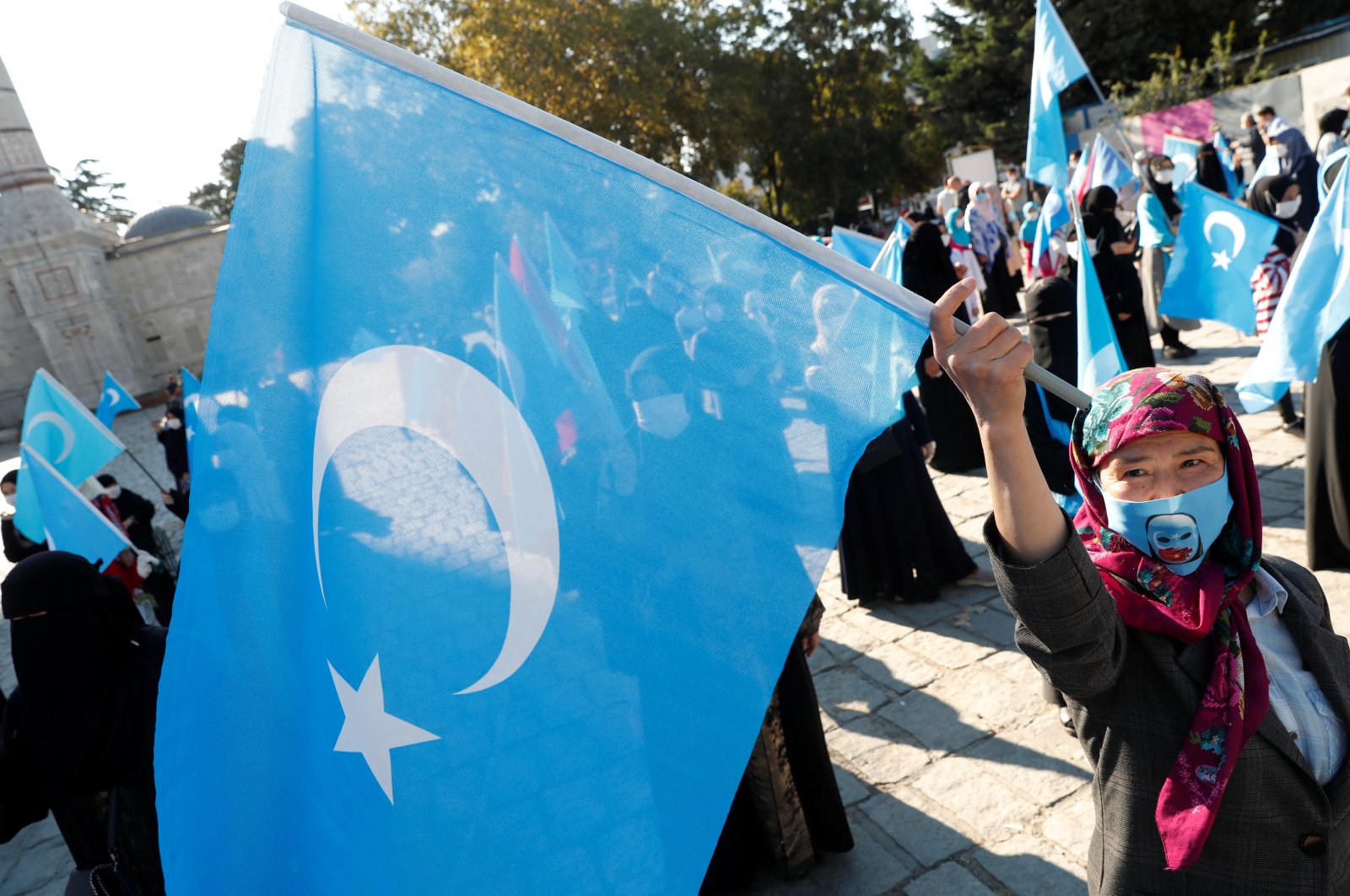
The Uyghur Turks have lived with the Chinese throughout history. They have been independent twice. The first instance of independence was during the existence of the “East Turkistan Islamic Republic” in 1933-34 while the other was during the existence of “East Turkestan Republic” between 1944-49. Both states came to an end with the occupation of the People’s Republic of China. East Turkistan has always been important for China due to its natural resources and the centrality of its location with regards to important energy transit lines and trade routes (the Silk Road). Today, the Uyghurs, a relatively tiny minority group in China, has become a key element in China’s general domestic policy, identity politics, and national security perception, which has resulted in them being oppressed and exposed to human rights violations.[1]
The Uyghur issue, which the Chinese administration has long treated as its own domestic issue, has come to international recognition because of these people being kept in mass detention camps and being subjected to increasing human rights violations. The denial of this policy by China, the attempt to explain the problem by referring to terrorism, and the lack of interest shown towards the social, economic, and cultural dimensions of the problem has caused the issue to acquire an international character over time. In this context, cotton exports in the region, which constitute approximately one-fifth of the world supply, have also triggered increasing concerns about the forced labor of Uyghurs. This situation has also affected the policies of international brands: well-known brands have reportedly collaborated with China in the cotton trade. As a result of demonstrations, these world-renowned brands have also made statements that they are against the forced labor of Uyghurs. H&M, for instance, no longer acquires supplies from the region. The Trump administration of the US has banned the import of cotton from XPCC, one of China’s largest producers.[2] Ikea also stated that it would stop sourcing cotton from Xinjiang. Adidas has claimed to The Guardian that it does not source goods from Xinjiang and have told suppliers not to do so either.[3] Such approaches and reactions of major brands directed the attention of the world public opinion to the Uyghur issue.
Today, Turkey and other Muslim majority countries have refrained from adopting an accusatory stance against the Chinese government about the pressure exerted by China and human rights violations against the Uyghurs. Undoubtedly, the most important reason for this attitude is considerations over economic relations. Turkey, in an evolving Eurasian context, is striving to establish good trade relations and economic alliance with China in the east. Turkey’s attitude stems from the growing need for Chinese investment at a time when Western capital is not sufficiently available.[4] In this conjuncture, China becomes an important economic partner for Turkey.
Nevertheless, Turkey has historically been a safe haven for thousands of Uyghurs fleeing persecution in China since the 1960s. Turkey has time and again stated that it was “deeply concerned” by China’s “persecution of Uyghur Turks in Xinjiang”. It is a delicate double-edged policy expressing concern for the treatment of Uyghurs, on the one hand, and developing good economic relations on the other. This policy is criticized by some that Turkey’s support for the Uyghur minority has been watered down.[5] Currently, China is making major investments in Turkey’s infrastructure development projects. In a country that connects Europe to Asia, such investments are important for China’s trade routes to the West. Chinese freight trains have started heading towards Europe through the Marmaray railway.[6]
Despite all the sensitivities, Turkey holds the Uyghur issue on its agenda with the larger perspective of the solidarity with the Turkic world. In doing so, Turkey seeks to pursue a constructive approach towards China. Turkey strives to explain that the Uyghur Turks can act as a bridge for establishing people-to-people bonds between China and Turkey, and that China should not break down this bridge. In the 75th United Nations (UN) General Assembly meeting, Turkey urged that the cultural and religious identity of the Uyghur Turks should be respected and guaranteed. According to this statement, while following the issue on international platforms including the UN and the Organisation of Islamic Cooperation (OIC), Turkey would continue constructive and direct dialogue with China in this regard.[7] According to recent information, the agreement on extradition that was signed in 2017 between China and Turkey has been ratified by China. This news has created concern among the Uyghur diaspora in Turkey. With this agreement, the Chinese administration aims to accelerate the process for the extradition of those who allegedly committed “terrorist crime” and took refuge in Turkey.[8] China’s ambassador to Turkey is reported to have stated that “Turkey will endanger its economic relations with Beijing if it continues to criticize the state of the Uyghur Turks in China”.[9]
At the same time, we had noted in a previous article[10] that the criticisms towards China concerning the Uyghur issue come at a time when the global power balance is noticeably shifting from the Euro-Atlantic to the Asia-Pacific region, with China being the prominent rising power in this context. As such, some of the more aggressive international criticisms directed at China may be interpreted as an excuse to interfere in China’s domestic issues to curtail its rise as a global power rather than a genuine interest in human rights and concern over the plight of the Uyghur Turks.
In sum, deepening economic ties are important for both Turkey and China. China’s decision to invest in Turkey is based on the acknowledgment of the fact that Turkey is a nexus for transcontinental energy and trade routes. China and Turkey may unfortunately have different positions regarding the sensitive issue of the Uyghur Turks. However, this has not prevented the growth and development of the relationship between the two parties.
*Photograph: Daily Sabah
[1] Kılıç Buğra Kanat, “Uygur sorunu ve Çin’in Balkanlaşma korkusu”, Al Jazeera Türk, 8 Temmuz 2015, http://www.aljazeera.com.tr/gorus/uygur-sorunu-ve-cinin-balkanlasma-korkusu
[2] “The Guardian view on China’s treatment of the Uighurs: from unthinkable to irrefutable”, The Guardian, December 13, 2020, https://www.theguardian.com/commentisfree/2020/dec/13/the-guardian-view-on-chinas-treatment-of-the-uighurs-from-unthinkable-to-irrefutable
[3] Julian Kossoff, “‘Virtually the entire apparel industry’ — from Gap to H&M to Adidas — is profiting from forced Uighur labor, activists say”, Business Insider, July 23, 2020, https://www.businessinsider.com/uighur-forced-labor-global-brands-profited-activists-letter-2020-7
[4] Ayhan Erdemir & Philip Kowalski, "China Buys Turkey’s Silence on Uyghur Oppression”, The Diplomat, August 21, 2020, https://thediplomat.com/2020/08/china-buys-turkeys-silence-on-uyghur-oppression/
[5] Areeb Ullah, “Turkey accused of deporting Uighurs back to China via third countries”, Middle East Eye, July 27, 2020, https://www.middleeasteye.net/news/uighurs-china-turkey-accused-deporting-third-countries
[6] Erdemir & Kowalski, "China Buys Turkey’s Silence on Uyghur Oppression”.
[7] “Turkey expects Uighurs to be treated as equal citizens of China”, Daily Sabah, October 7, 2020, https://www.dailysabah.com/politics/diplomacy/turkey-expects-uighurs-to-be-treated-as-equal-citizens-of-china
[8] “Çin, Türkiye ile imzalanan ‘Suçluların İadesi Anlaşması'nı onayladı; Uygur Türkleri endişeli’”, Euronews, 27 Aralık 2020, https://tr.euronews.com/2020/12/27/cin-turkiye-ile-imzalanan-suclular-n-iadesi-anlasmas-n-onaylad-uygur-turkleri-endiseli
[9] “Çin, Türkiye ile imzalanan 'Suçluların İadesi Anlaşması'nı onayladı; Uygur Türkleri endişeli”.
[10] AVİM, “İnsan Hakları İhlalleri, Uygur Özerk Bölgesi Ve Çin”, Avrasya İncelemeleri Merkezi (AVİM), Yorum No: 2019/79, 10 Aralık 2019, https://www.avim.org.tr/tr/Yorum/INSAN-HAKLARI-IHLALLERI-UYGUR-OZERK-BOLGESI-VE-CIN
© 2009-2025 Center for Eurasian Studies (AVİM) All Rights Reserved
No comments yet.
-
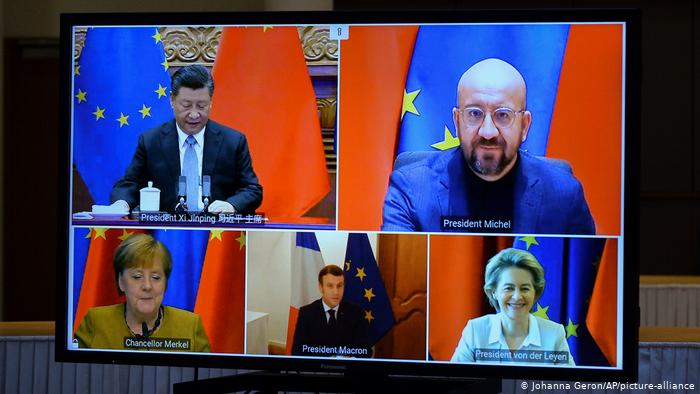 HOW TO UNDERSTAND THE EU-CHINA AGREEMENT ON INVESTMENT
HOW TO UNDERSTAND THE EU-CHINA AGREEMENT ON INVESTMENT
Şevval Beste GÖKÇELİK 08.02.2021 -
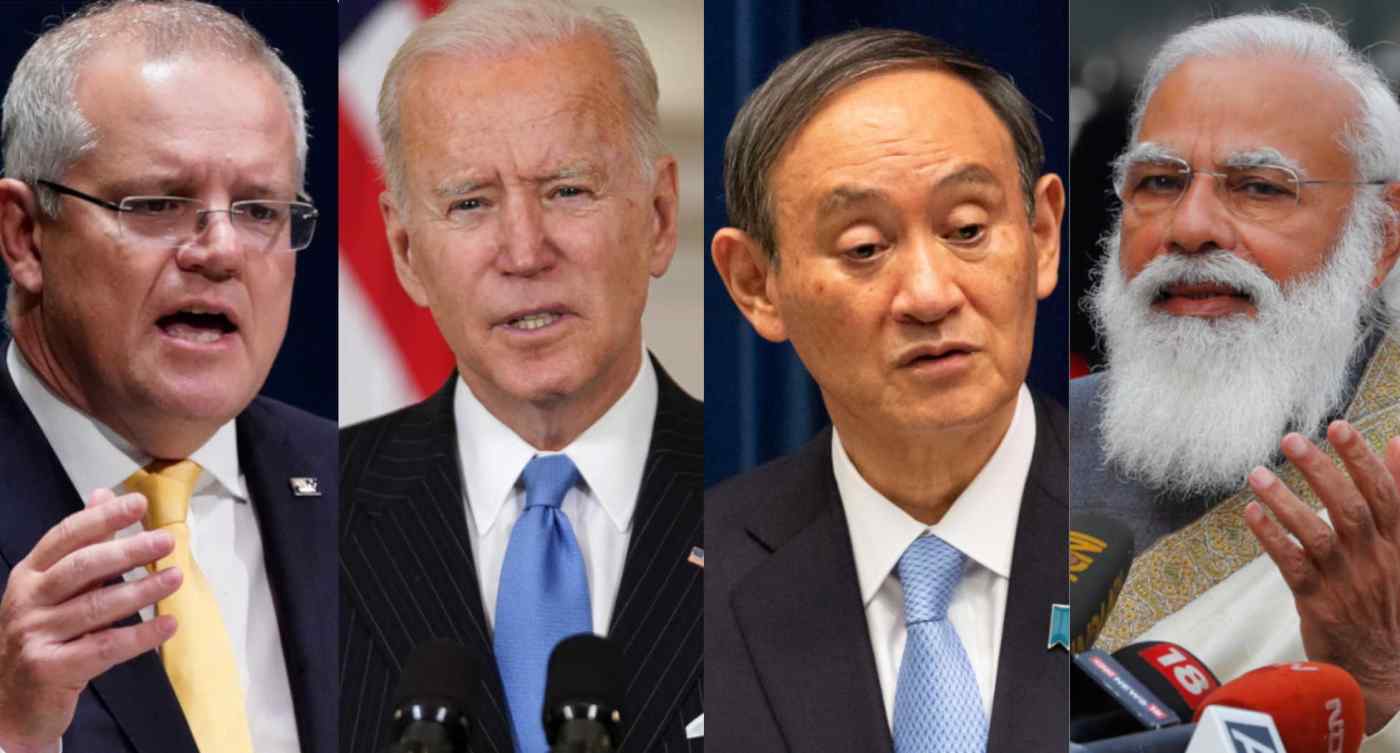 THE QUAD: TURNING POINT FOR THE INDO-PACIFIC
THE QUAD: TURNING POINT FOR THE INDO-PACIFIC
Şevval Beste GÖKÇELİK 01.04.2021 -
 WHY IS GERMANY INCREASING ITS ARMAMENT CAPACITY?
WHY IS GERMANY INCREASING ITS ARMAMENT CAPACITY?
Şevval Beste GÖKÇELİK 29.03.2022 -
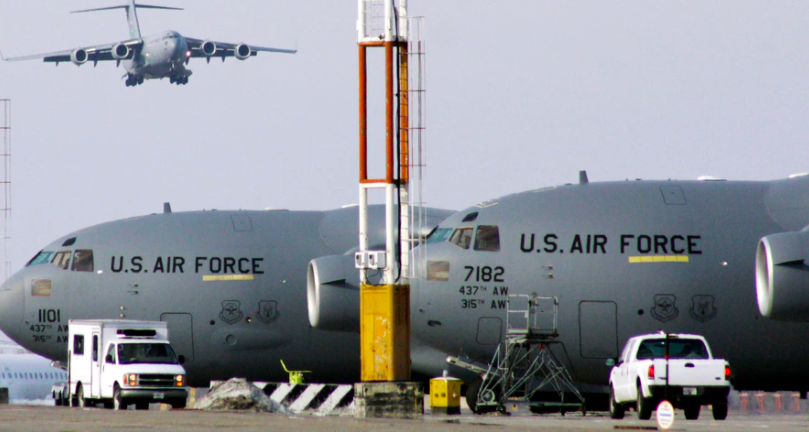 US INTERESTS IN CENTRAL ASIA
US INTERESTS IN CENTRAL ASIA
Şevval Beste GÖKÇELİK 06.07.2021 -
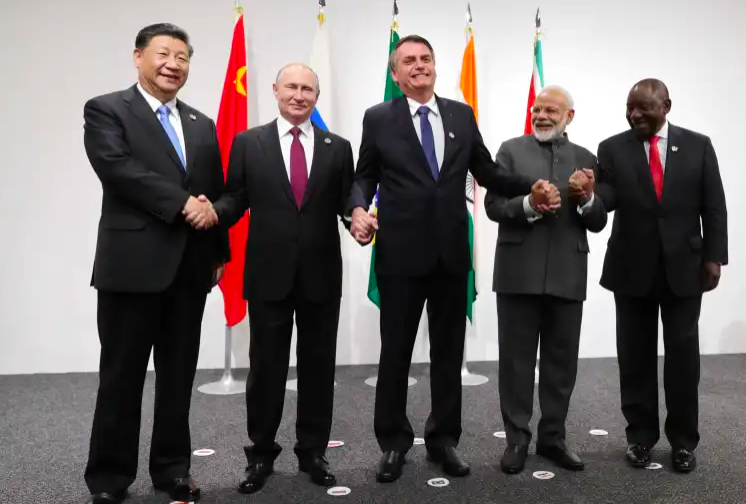 BRICS TAKES A POSITIVIVE VIEW OF ENLARGEMENT
BRICS TAKES A POSITIVIVE VIEW OF ENLARGEMENT
Şevval Beste GÖKÇELİK 04.07.2022
-
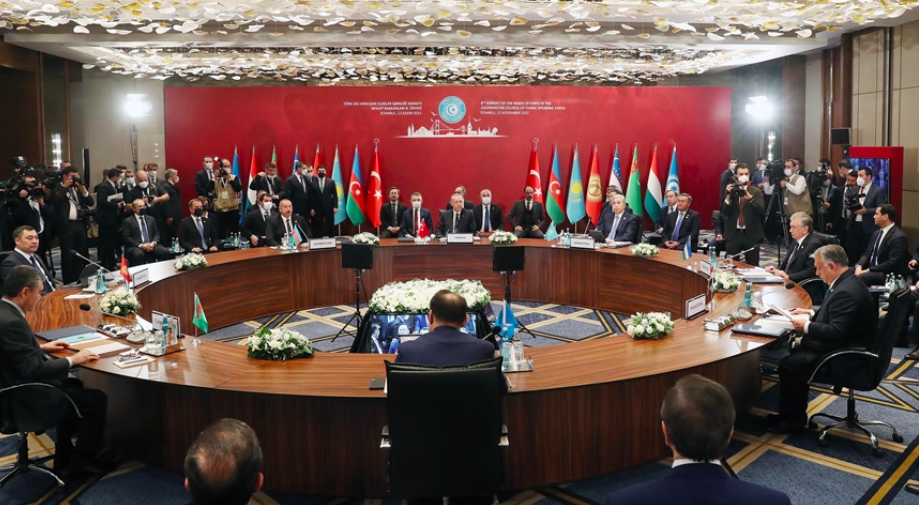 FROM TURKIC COUNCIL TO ORGANIZATION OF TURKIC STATES
FROM TURKIC COUNCIL TO ORGANIZATION OF TURKIC STATES
Şevval Beste GÖKÇELİK 22.11.2021 -
 PROTESTS AGAINST THE “SOCIAL PARASITE TAX” IN BELARUS
PROTESTS AGAINST THE “SOCIAL PARASITE TAX” IN BELARUS
Turgut Kerem TUNCEL 24.03.2017 -
 SASSOUNIAN PAROLE IS AGAIN ON THE AGENDA
SASSOUNIAN PAROLE IS AGAIN ON THE AGENDA
Hazel ÇAĞAN ELBİR 29.05.2018 -
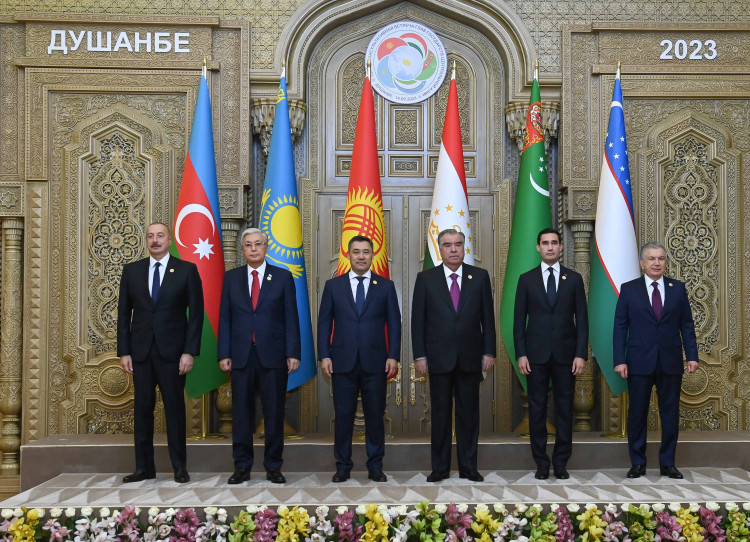 THE FIFTH CONSULTATIVE MEETING OF HEADS OF STATE OF CENTRAL ASIA
THE FIFTH CONSULTATIVE MEETING OF HEADS OF STATE OF CENTRAL ASIA
Gülperi GÜNGÖR 29.09.2023 -
 THIRD LEGAL VICTORY AGAINST ARMENIAN NATIONALISTS IN FRANCE
THIRD LEGAL VICTORY AGAINST ARMENIAN NATIONALISTS IN FRANCE
Maxime GAUIN 05.05.2014
-
25.01.2016
THE ARMENIAN QUESTION - BASIC KNOWLEDGE AND DOCUMENTATION -
12.06.2024
THE TRUTH WILL OUT -
27.03.2023
RADİKAL ERMENİ UNSURLARCA GERÇEKLEŞTİRİLEN MEZALİMLER VE VANDALİZM -
17.03.2023
PATRIOTISM PERVERTED -
23.02.2023
MEN ARE LIKE THAT -
03.02.2023
BAKÜ-TİFLİS-CEYHAN BORU HATTININ YAŞANAN TARİHİ -
16.12.2022
INTERNATIONAL SCHOLARS ON THE EVENTS OF 1915 -
07.12.2022
FAKE PHOTOS AND THE ARMENIAN PROPAGANDA -
07.12.2022
ERMENİ PROPAGANDASI VE SAHTE RESİMLER -
01.01.2022
A Letter From Japan - Strategically Mum: The Silence of the Armenians -
01.01.2022
Japonya'dan Bir Mektup - Stratejik Suskunluk: Ermenilerin Sessizliği -
03.06.2020
Anastas Mikoyan: Confessions of an Armenian Bolshevik -
08.04.2020
Sovyet Sonrası Ukrayna’da Devlet, Toplum ve Siyaset - Değişen Dinamikler, Dönüşen Kimlikler -
12.06.2018
Ermeni Sorunuyla İlgili İngiliz Belgeleri (1912-1923) - British Documents on Armenian Question (1912-1923) -
02.12.2016
Turkish-Russian Academics: A Historical Study on the Caucasus -
01.07.2016
Gürcistan'daki Müslüman Topluluklar: Azınlık Hakları, Kimlik, Siyaset -
10.03.2016
Armenian Diaspora: Diaspora, State and the Imagination of the Republic of Armenia -
24.01.2016
ERMENİ SORUNU - TEMEL BİLGİ VE BELGELER (2. BASKI)
-
AVİM Conference Hall 24.01.2023
CONFERENCE TITLED “HUNGARY’S PERSPECTIVES ON THE TURKIC WORLD"









